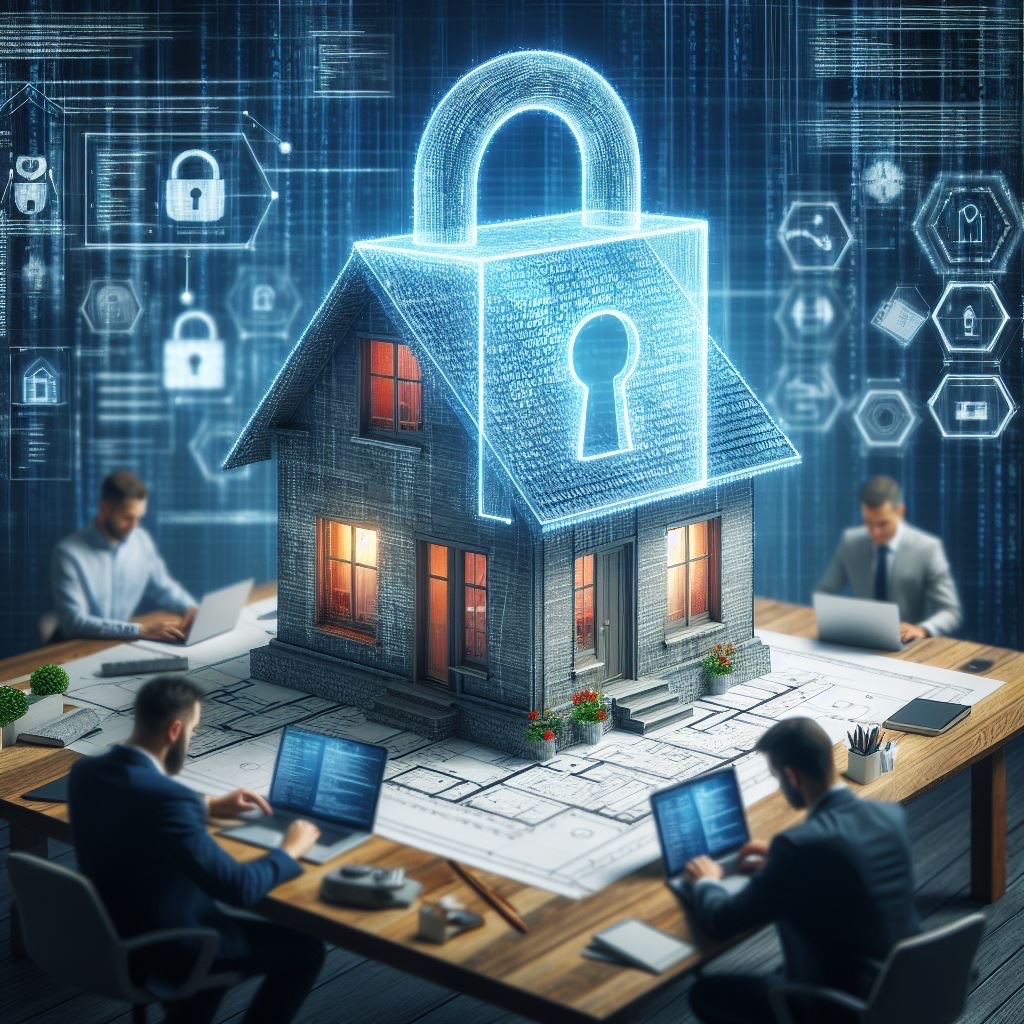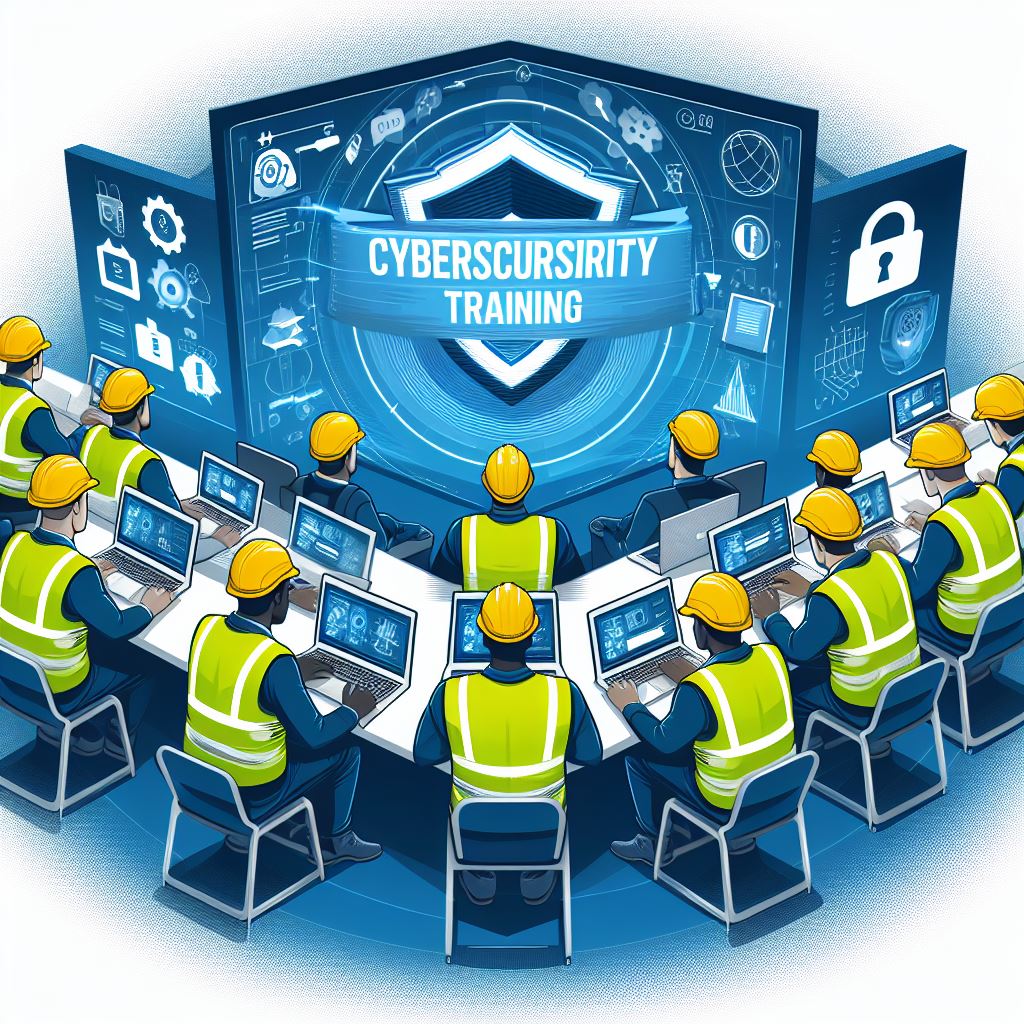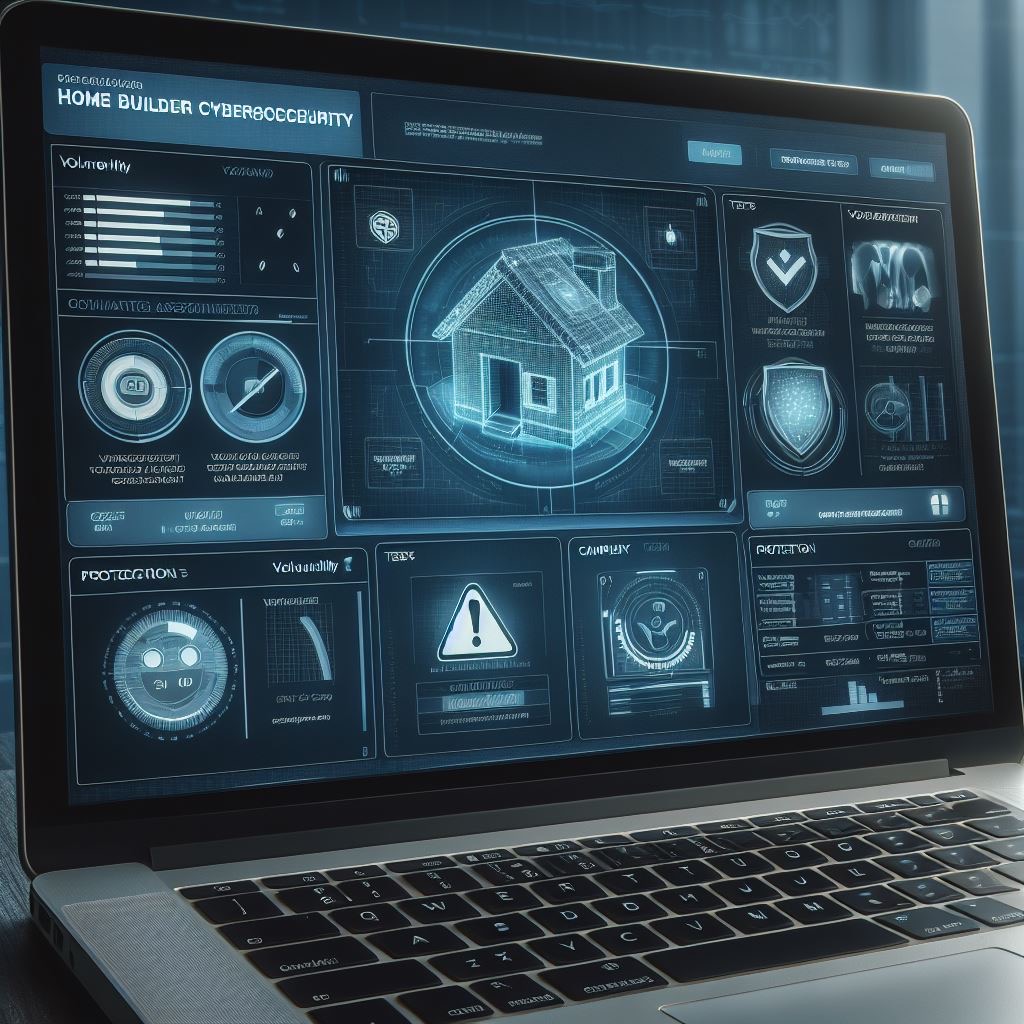
Defying All Odds - Day 12: Protecting Construction Company Data: Cybersecurity Tips for Residential Builders
“You have to be prepared to fight and finish your own battles.” - Jim Harbaugh
Introduction:
In our our featured article, we explored the thrilling story of a construction company that defied all odds to overcome cyber threats and emerge victorious. If you are a residential builder, this article is for you. Join us on Day 12 as we continue our journey to help you become victorious.
Data protection is a critical aspect of cybersecurity for residential builders. In this article, we will provide practical cybersecurity tips specifically tailored to residential builders for protecting their construction company data. From securing project plans to safeguarding client information, these tips will help residential builders establish robust data protection measures. By implementing these cybersecurity tips, residential builders can ensure the confidentiality, integrity, and availability of their data and protect their business interests.
1. Secure Project Plans and Blueprints

Protecting project plans and blueprints is essential to maintain the confidentiality of sensitive information. Residential builders should implement strong access controls, including password protection and encryption, to limit access to authorized personnel only. Storing project plans on secure servers or cloud platforms with multi-factor authentication adds an extra layer of security.
2. Train Employees on Data Security

Educating employees on data security best practices is crucial in preventing data breaches. Conduct regular training sessions to raise awareness about phishing attacks, malware, and social engineering techniques. Encourage employees to use strong passwords, avoid clicking on suspicious links or downloading unknown attachments, and report any security incidents promptly.
3. Secure Network Infrastructure

Residential builders should secure their network infrastructure to protect data in transit. This includes implementing firewalls, intrusion detection systems, and virtual private networks (VPNs) to encrypt data transmitted between different locations or remote workers. Regularly update network equipment firmware and apply security patches to mitigate vulnerabilities.
4. Regularly Backup Data

Implementing regular data backups is essential to ensure data availability and recoverability in the event of a cyber incident. Residential builders should establish automated backup processes for critical data, including project files, client information, financial records, and employee data. Backups should be stored securely, either on off-site servers or in the cloud, to protect against physical damage or loss. Regularly test the restore process to ensure the backups are working properly and that data can be recovered effectively.
5. Implement Access Controls and User Permissions

Controlling access to sensitive data is crucial in preventing unauthorized access and data breaches. Residential builders should implement access controls and user permissions to restrict access to sensitive information based on the principle of least privilege. This means that employees should only have access to the data and systems necessary for their job roles. Regularly review and update user permissions to ensure that access rights are aligned with current job responsibilities and organizational changes.
6. Use Strong Passwords and Multi-Factor Authentication

Encourage employees to use strong, unique passwords for their accounts and regularly update them. Passwords should be complex, consisting of a combination of letters, numbers, and special characters. Implementing multi-factor authentication adds an extra layer of security by requiring users to provide additional verification, such as a unique code sent to their mobile device. This helps prevent unauthorized access even if a password is compromised.
7. Stay Up to Date with Security Patches and Updates

Regularly updating software, applications, and operating systems is essential to protect against known vulnerabilities. Developers release security patches and updates to fix identified vulnerabilities and improve overall system security. Residential builders should establish a process to regularly apply these updates to all devices and systems within their network. Additionally, consider using a centralized patch management system to streamline the update process and ensure timely protection against emerging threats.
8. Conduct Regular Security Audits and Penetration Testing

Regular security audits and penetration testing can help identify vulnerabilities and weaknesses in the company's cybersecurity defenses. Engage a third-party cybersecurity firm to conduct comprehensive audits and penetration tests to identify potential areas of improvement. This will enable residential builders to proactively address any vulnerabilities and strengthen their overall cybersecurity posture.
Conclusion:
Protecting construction company data is paramount in today's digital landscape. By implementing these cybersecurity tips, residential builders can establish robust data protection measures and safeguard their business interests. Securing project plans and blueprints, training employees on data security best practices, securing network infrastructure, regularly backing up data, implementing access controls and user permissions, using strong passwords and multi-factor authentication, staying up to date with security patches and updates, and conducting regular security audits and penetration testing are essential steps to enhance cybersecurity. By prioritizing data protection, residential builders can mitigate the risk of data breaches, ensure business continuity, and maintain the trust of clients and stakeholders.
Best Practices for Securing Data in the Construction Industry:
1. Data Classification and Access Control:

Classify data based on its sensitivity and implement access controls accordingly. Limit access to confidential and sensitive data to authorized personnel only. Utilize strong authentication methods, such as multi-factor authentication, to ensure only authorized individuals can access critical data.
2. Encryption:

Implement encryption techniques to protect data both in transit and at rest. Use encryption protocols, such as Secure Sockets Layer/Transport Layer Security (SSL/TLS), to secure data during transmission. Encrypt sensitive data stored in databases, servers, and other storage devices to prevent unauthorized access in case of a breach.
3. Regular Data Backups:

Implement regular data backup procedures to ensure the availability and recoverability of critical data. Store backups in secure off-site locations or utilize cloud-based backup solutions with strong encryption and access controls.
4. Employee Training and Awareness:

Educate employees about data security best practices and the importance of safeguarding sensitive information. Train employees on how to identify and respond to phishing attempts, social engineering attacks, and other common cyber threats. Foster a culture of cybersecurity awareness throughout the organization.
5. Incident Response and Recovery:

Develop an incident response plan to address potential data breaches or cybersecurity incidents. Establish procedures for detecting, containing, and mitigating the impact of a security breach. Regularly test the incident response plan to ensure its effectiveness and update it as needed.
6. Regular Security Audits and Assessments:

Conduct regular security audits and assessments to identify vulnerabilities and areas for improvement. Engage third-party cybersecurity professionals to perform penetration testing and vulnerability assessments to identify potential weaknesses in your systems and networks.
Looking for ways to improve your company's Cybersecurity? Download 15 Ways to Prevent a Cyber Attack FREE TRAINING and you can even schedule a FREE 15-Minute Cyber Consult.

Prioritizing Cybersecurity in the Construction Industry:
To protect themselves from the financial impact of cybersecurity breaches, construction companies must prioritize cybersecurity and implement robust measures. Here are some essential steps to consider:
1. Conduct a Cybersecurity Risk Assessment:

Identify and assess potential vulnerabilities and risks within your organization. This assessment will help you understand the potential financial impact of a breach and prioritize mitigation efforts.
2. Develop a Comprehensive Cybersecurity Strategy:

Create a cybersecurity strategy that aligns with your organization's goals and risk tolerance. This strategy should include measures such as employee training, regular software updates, strong password policies, and network security protocols.
3. Invest in Cyber Insurance:

Consider obtaining cyber insurance coverage to mitigate the financial risks associated with cybersecurity breaches. Cyber insurance can help cover the costs of legal liabilities, data recovery, and business interruption.
4. Collaborate with Cybersecurity Experts:

Engage with cybersecurity professionals who specialize in the construction industry. They can provide guidance on best practices, help implement security measures, and conduct regular audits to identify and address vulnerabilities.
Want to know if your construction company is at major risk of getting hacked? Click here for a FREE 15-Minute Cyber Consult.

5 Reasons Your Construction Company Needs a Cybersecurity Risk Assessment. 👊
It is important for construction companies to conduct a cybersecurity risk assessment for several reasons:
1. Protection of sensitive data:
Construction companies handle a vast amount of sensitive data, including financial information, project details, client information, and employee records. Conducting a cybersecurity risk assessment helps identify potential vulnerabilities and ensures appropriate safeguards are in place to protect this data from unauthorized access, data breaches, or theft.
2. Mitigating financial losses:
Cyberattacks can result in significant financial losses for construction companies. These losses can stem from data breaches, ransomware attacks, or the disruption of critical systems. By conducting a cybersecurity risk assessment, companies can identify potential weaknesses in their IT infrastructure and take proactive measures to mitigate the financial risks associated with cyber threats.
3. Maintaining business continuity:
A successful cyber-attack can disrupt construction projects, delay timelines, and impact the overall business operations. By conducting a risk assessment, construction companies can identify potential vulnerabilities and implement robust cybersecurity measures to ensure business continuity. This includes having backup systems, disaster recovery plans, and incident response protocols in place.
4. Protecting reputation and client trust:
Construction companies rely on their reputation and client trust to secure new projects and contracts. A cybersecurity breach can undermine trust, damage the company's reputation, and lead to the loss of clients. By conducting a risk assessment and implementing appropriate cybersecurity measures, construction companies can demonstrate their commitment to protecting client data and maintaining a secure operating environment.
5. Compliance with regulations:
Construction companies may be subject to industry-specific regulations and legal requirements regarding data protection and cybersecurity. Conducting a risk assessment helps identify any gaps in compliance and ensures that the company meets the necessary regulatory obligations.
Overall, conducting a cybersecurity risk assessment allows construction companies to proactively identify and address potential vulnerabilities, protect sensitive data, mitigate financial losses, maintain business continuity, protect their reputation, and comply with relevant regulations.
Other resources to help you get started with Cybersecurity
Start your own Cybersecurity initiative:
Here is a quick checklist to get you started with your Cybersecurity initiative. Remember imperfect action beats inaction, get started and keep pushing for progress and awareness with your people.
Update your software
Secure your files
Require passwords
Encrypt devices
Use multi-factor authentication
Protect your wireless network
Make "SMART SECURITY" your business as usual
Require strong passwords
Train all staff
Have a plan
